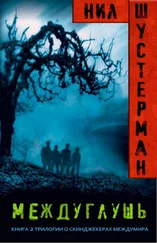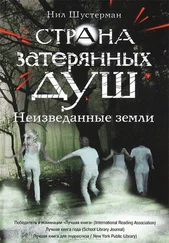“No one ever believed us when we told them we were just friends, and we weren’t going out. Now they’ll never believe us.”
“Are we going out now?”
“I don’t know, are we?”
“I don’t know, do you want to?”
“I don’t know, do you?”
“I don’t know,” said Cheryl. “I always thought of you sort of like a brother.”
“You thought of me like Randall?”
“Yuk! No way!”
“Well, then I guess you didn’t think of me like a brother.”
I tempted fate and kissed her again. Now I didn’t care what anybody thought. I didn’t care if people thought we were always going out. I didn’t care if people said things. I didn’t care if some golden rule was written across the sky saying that you can’t go out with your best friend. I didn’t care. Those were tree-house rules for tree-house friends, and the tree house had grown much too small these past few years.
Everything changed just a little bit after that Friday afternoon. I found myself thinking a lot more about Cheryl, and spending all my free time with her. Randall made a big deal about it, and tried to spread whatever nasty rumors a kid brother can get away with spreading, but it didn’t bother us; we were having too good a time together to worry about it. After a few days it was hard to imagine what it was like before we started going out.
We knew this was just the start of a wonderful time in both of our lives, and the next few months were going to be great. I had a feeling that everything would start going my way. In just a few weeks Coach Shuler would be choosing the one runner to represent the school in the District Olympics, and now I really believed that I would, just once, beat out Austin. Between Cheryl, the Shadow Club, and the progress I was making on the track team, I figured I had it made.
Things never turn out the way you plan, though. Bad things have a way of coming back at you, kind of like a boomerang. I don’t think anyone ever gets away with anything, you know? Sure, maybe they think they might get away with things, but in the end—could be years later even—boom! That boomerang comes flying right back in their face.
The Shadow Club had a boomerang, and it seemed to pick up speed on its way back. It was a strange boomerang that nobody quite expected and nobody quite understood, but it hit every single one of us so quickly, so furiously, that we never knew what hit us.
* * *
There are lots of good jokes you could pull on somebody’s locker. You could hide in it, and scare the daylights out of them when they opened it. You could put a rotten egg in it; that’s always good for a laugh. You could set up a bucket of water that would pour on their head when they opened it; that was always good for a laugh, too.
But what Eric Kilfoil, the star basketball player, found when he opened his locker was not funny at all. It was no joke; it was downright nasty. Everything was there, just where he had left it before basketball practice, but things were definitely not the same. Someone had gone into his locker and drenched everything, his clothes, his new sweats, even his books, with black paint. And not the kind that comes out, either. This was thick stuff that could never wash out. He was so mad, he began to kick all the lockers. I could hear it all the way out on the track.
His clothes were ruined, his books were ruined, even his science project was ruined, and you know what?
The Shadow Club didn’t do it!
There are tricks and there are tricks. This was just plain mean, and Darren, who saw the locker, had no idea who would do such a thing, or why.
Eric Kilfoil became the first mysterious victim in a wave of unexplained crimes.
* * *
There was a locker search next Monday. Everyone knows that locker searches are illegal, but that doesn’t matter much when someone steals the principal’s eight-hundred-dollar camera.
Mr. Diller, the principal, was the kind of guy who thought that the kids in our school were to blame for all of Earth’s problems, and he was sure one of us must have stolen his camera. He had us all line up by our lockers, one class at a time, and one by one he searched each locker, leaving no stone unturned. You see, that camera was his life, and any kid caught with it was going to see trouble like no one had ever seen before. I’d never seen Diller this mad. Ralphy Sherman said that he had seen a bum walking away with it, which just made Diller more certain it was still in school.
My row of lockers was the last one to be checked.
One by one Mr. Diller had us open our lockers, to prove to him we didn’t have his camera, and one by one we cleared ourselves of blame.
Then he came to Tommy Nickols, O.P.’s archenemy. Tommy opened his locker, just like the rest of us. It was a mess: papers everywhere, old library books that were way overdue, and a black strap sticking out from beneath them. Tommy looked up at Diller, then back down at his locker, and Diller reached in, pulling on the strap. Out came his eight-hundred-dollar camera.
“I didn’t do it!” was all Tommy could say. “It wasn’t me, it wasn’t me!” But the evidence was staring us all in the face.
Tommy began to cry, even harder than he did when Octavia got stomped on. “I didn’t do it!” he wailed, over and over again.
I looked across at O.P., Cheryl, and Darren. I could tell by the looks on their faces that they had nothing to do with this. This was not a Shadow Club prank, and I believed Tommy Nickols. Tommy was a good kid, and this stank of sabotage. Someone had planted that camera, I knew it, but I couldn’t figure out who would do such a thing.
Mr. Diller, on the other hand, believed what he saw. Tommy Nickols, the ninth grade’s best student, was suspended for three days.
* * *
David Berger, in spite of the sliming event, was still chosen to play a solo with the high school band, and as usual, he made everyone in the junior high band feel lousy about it.
One afternoon, as the buses were loading up to go home, David came running out of his bus like a maniac. It was just before track practice, and I was talking with Cheryl—which I was doing quite a lot of lately—when he came bursting between us and asked, “Hey, has anybody seen my trumpet?”
“Why would we have seen your trumpet?” answered Cheryl.
He ran to another group of kids, desperately asking, “Has anybody seen my trumpet? I think it’s been stolen!”
He asked every kid who came out of school, ran into the school, then came out a few minutes later. He was near tears. “I checked all the classrooms. I know I had it with me. Somebody stole it!”
None of us thought much of it until about thirty seconds later, when the buses began to pull out, and a horrible crunching noise sounded from the back tires of bus number five.
When David saw it, he nearly dove beneath the wheels to save his trumpet, but it was too late. By the time the bus driver realized what was going on and stopped the bus, David Berger’s silver trumpet had been crushed flat, never to play, or slime anyone ever again. He held it up and tried to push down on one of the valves, but it didn’t move. He tried a bit harder, and the valve fell off; the thing might as well have been flattened by a steamroller. David sort of wandered off in shock, holding his trumpet as if it were a baby.
A minute later, Jason Perez ran up to Cheryl and me.
“I didn’t do it,” he said. “I didn’t, honestly, I didn’t!” and I knew he was telling the truth. It seemed that someone else had picked up the pranks where we had left off. It was as if all the hatred built up by the Shadow Club became an invisible monster that went around pulling its own horrible pranks. I knew there had to be a more logical explanation, though.
Читать дальше











![Нил Шустерман - Жнец [litres]](/books/418707/nil-shusterman-zhnec-litres-thumb.webp)
